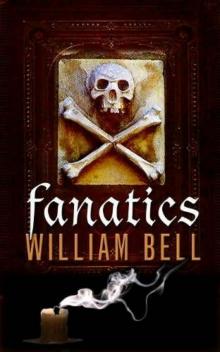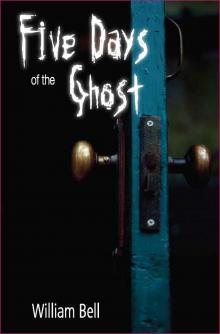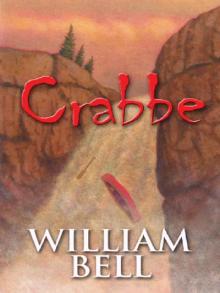- Home
- William Bell
Fanatics
Fanatics Read online
Fanatics
William Bell
A sequel to the very popular Stones, Fanatics is a thrilling story in which the past and present collide in terrifying, riveting ways.
Garnet Havelock has just finished his apprenticeship in furniture-making, and has found a workshop for his new business in an old coach house on the isolated estate of recently deceased Professor Eduardo Corbizzi. Garnet signs a contract with the late professor's long-time companion, the eccentric and inscrutable Mrs. Valentina Stoppini, who presides over the mansion and is its only occupant. The terms of the deal are excellent, but there's a catch: Garnet has to repair the library's fire damage and keep all details about the estate confidential. Only after he agrees does Mrs. Stoppini inform him that the professor died of a seizure in the library under mysterious circumstances involving "an accident" and "a small fire." It isn't long before a distressing collision of past and present drags Garnet towards a horrifying truth he could never have imagined.
William Bell
Fanatics
Copyright © 2011 William Bell
For Ting-xing
PROLOGUE
A LONG TIME AGO, when my grade eight teacher got so fed up with my behaviour that she kicked me out of class, she had no idea-she was so knotted with anger she wouldn’t have cared-that her outburst of frustration would lead to a crime.
Mrs. Sykes was cursed with wide, wet rubbery lips. When she talked, water gathered in the corners of her mouth and her lips shone with moisture. If she was irritated, as she was that day, the spit machine went into high gear and produced a tiny rainstorm that made you feel as if you’d stuck your head out a car window on a drizzly day.
“Go away!” she shouted.
The classroom door slammed in my face. I shrugged my shoulders, wiped my cheeks and forehead on my sleeve, and ambled down the hall to the library. Mrs. Tanner greeted me with a sour, unsympathetic look and heaved her bulky body from her chair behind the checkout desk. Muttering that this was the third time in a month, she thrust an old book with a blue cloth cover into my hands and ordered me to sit in the corner farthest from her desk but still in her line of vision.
“Read,” she commanded. “Quietly.”
The collection of ancient Greek myths hooked me right away. I read until the end of the day, then checked out the book and took it home. I renewed it so many times that Mrs. Tanner eventually gave up trying to get it back. When I graduated and went on to high school, the blue volume remained on the shelf in my room.
I guess you could say that I stole the book, but since Sykes and Tanner were accomplices the theft wasn’t my fault. If Sykes hadn’t kicked me out of class, I wouldn’t have gone to the library. If Tanner had pressed a different, less interesting choice into my hands, I would have left it on the library chair when the end-of-day bell rang. You could say I was fated to read the book and like it enough to re-read it many times. Maybe Sykes, Tanner, and I were committing acts according to a plan we had no control over. We were like train cars pulled helplessly along tracks laid down by the gods long before we were born.
I found this notion in the blue book of myths. There were three old misshapen hags with ragged clothes and hearts as cold and spiky as icicles. They were called the Moirae, or Fates, and they controlled the destiny of every being on earth. The ancient Greeks seemed to swallow this idea calmly.
Not me. Even in grade eight I saw through the shabby excuse that the events in our lives are decided by semi-divine beings. I knew I had ended up in the library that day because I had pushed the grumpy Mrs. Sykes too far. I was bored by her tedious vocabulary exercises, and bugging her was a way to pass the time. I, not a warty trio of half-demented old crones, was responsible.
It’s true-life has its surprises. Sometimes the first link in a chain of events you’d never have imagined is forged by an ordinary routine action-like walking down Mississauga Street one morning, stepping into a cafe, and ordering a cup of coffee.
PART ONE
Flee, flee from those who speak in the name of God.
– Eduardo Corbizzi
One
I
IT STARTED ON A MONDAY MORNING in early summer. As usual, I pushed through the alley door into the cramped room at the back of Olde Gold Antiques and Collectibles-the Mississauga Street store owned by my parents-where I was the official restorer, refinisher, and repairer of furniture. The store was closed the first day of the week, so I could toil away without being distracted by the tinkle of the doorbell.
I slid an autorickshaw CD into the player and began to repair an antique bird’s-eye maple chest. Somehow the upper-right drawer had been smashed-it takes a mighty blow to break a dovetailed pine drawer-and Dad had asked me to make a new one. He had sold the chest and promised delivery in a couple of days.
Soon I was lost in the fragrance of pine shavings and sawdust, the rasp of steel teeth on wood, the familiar vibration in the saw’s handle as the blade cut kerfs along the lines I had scribed to mark the dovetails. An up-to-date cabinetmaker would have used an electric router to make the dovetails, but I preferred hand tools.
When the dovetails were done, I chiselled out the slots that the drawer bottom would rest in, cleaned up the edges with a bit of sandpaper, then painted the corner joints with glue and fitted the drawer sides to the front. After I slid the bottom into its grooves-without glue-I eased the back into place and clamped the completed drawer, setting it aside to let the adhesive dry. Good for another hundred years or so.
I hung my apron on a hook beside the curtain that separated the shop from the showroom, brushed sawdust off my sleeves, and left by the front door, crossing the street to the sunny side to get a good view of Olde Gold’s display window and the small walnut cabinet I had designed and made myself. On the store’s sign, OLDE GOLD ANTIQUES AND COLLECTIBLES, there was room for another line of print: Fine Custom Furniture.
With the ink on my high school diploma barely dry I had spent most of the past year as unofficial apprentice to Norbert Armstrong, a well-known local cabinetmaker. I wanted to design and make furniture, not spend my life working only for my parents, and although it had taken Mom a while to come around, they supported my ambition. When I “graduated”-the ceremony was a picnic of ham sandwiches, potato salad, and Norbert’s foul-tasting homemade beer on the patio behind his shop in Hillsdale-Norbert had grumbled good-naturedly that for the first time in many years he might have some competition. I took his remark as a compliment.
I headed down Mississauga Street, bought a copy of the local paper from a box outside the Shepherd’s Crook pub, and re-crossed the road where it began its descent to the park on the shore of Lake Couchiching. The Mariposa Princess, a double-decker sightseeing boat, was backing away from the pier to begin its morning tour of the lake.
I stepped into the Half Moon Cafe, with its fragrance of ground coffee and fresh baking. It was a popular place, with maybe a dozen wrought-iron tables, the original plank floor, and a stamped-tin ceiling painted light grey and crisscrossed with pipes and ducts.
I took a table near the coffee bar and opened the paper to the classified ads.
“Hey, Garnet,” I heard from behind the bar.
Marco Grenoble was not a good advertisement for the famous homemade pizzas he concocted in the little kitchen at the back of the restaurant or the tasty Italian pastries displayed in tiers along the bar. Tall, reed thin with a concave abdomen, he wore a T-shirt and an apron stained with pizza sauce.
“Hi, Marco.”
“The usual?”
“Sure. Thanks.”
“I’ll bring it myself.”
I went back to the ads for property rentals. It didn’t take long to see there was nothing there for me. I’d try some online sources later.
“You lookin�
� to move away from home?” Marco asked, placing a mug of latte on the table and then, beside it, a plate with three tiny lemon tarts in the middle.
“Thanks, Marco, but I only ordered the coffee.”
“You gotta eat somethin’. You’re too thin.”
I folded up the paper and put it aside. “Well, thanks.”
Marco nodded toward the paper. “So…”
“I’m trying to find space to rent,” I explained. “The shop at the back of our store isn’t big enough for the business I hope to start up.”
I went on to describe what I was after. I needed room for a few large work and layout tables, machines like saws and planers, a booth for spray staining, and an electricity supply that would take the strain of all that equipment. I didn’t have the machines lined up yet, or the money to buy or lease them, but I could at least search for a place.
“Latte okay?” Marco asked when I had finished talking.
“Perfect.”
“How big an area d’you need?”
I looked around the restaurant. “About what you have here, give or take.”
Marco turned his head from side to side, taking in the room as if seeing it for the first time. “I got this cousin,” he said, but didn’t finish the thought.
I nodded to encourage him, took a sip of my latte, said, “Uh-huh.”
“A distant cousin.” He smiled, making creases like parentheses on either side of his mouth, and ran his fingers through greying hair. “Real distant. From the brainy side of the clan-the Corbizzis. Heard of Professor Corbizzi? Never mind. Anyways, the old prof passed away some time ago. I heard that whoever takes care of the estate wants to rent out the coach house. You prob’ly know about the old mansion.”
“No, I don’t think so.”
“It’s up the lake a ways. North of town. Sits out there on its own little peninsula. Course you can’t see the house from the water. Too many trees. Anyways, if you’re interested I’ll try to get you the phone number.”
“Sure,” I said. “Why not?”
“Might take me a day or so. It’s unlisted, and I don’t know who inherited the place.”
“No problem.”
“One thing, though,” Marco added, “there might be a string or two attached.” He smiled again. “With the Corbizzis, there always is.”
II
THE RAIN SHOWER that began as I left Orillia had faded to light drizzle by the time I delivered the chest with the repaired drawer to a house on Big Bay Point. When I pulled into a parking spot across the street from the bus station in Barrie, the afternoon sun was shouldering through the overcast, flooding the street and the whitecapped waves of Kempenfelt Bay with honey-coloured light.
After a while, the Toronto bus turned onto Maple Street, its engine roaring, its brakes hissing, and swung into the station. The doors flapped open and the driver hopped out and heaved up the cargo doors. He began to pass cases and bags to the knot of passengers who had quickly gathered behind him. Raphaella was the last to step off the bus, a tote bag slung over one shoulder.
I stayed in the van for a few minutes, watching her. She would be expecting to see our old white van and wouldn’t notice me right away. She looked around as commuters flowed past her, rushing to taxis, the parking lot, or the line of cars in the pickup lane by the curb. Although their bodies were here on Maple Street, their minds were already somewhere else-at home, most likely. Whoever said you couldn’t be two places at once was wrong.
Raphaella wasn’t like them. She stood under the eaves of the station, beautiful as always in a black leather coat with caramel trim at the collar and cuffs. Her coal black hair, gathered behind her neck, fell to the middle of her back. The afternoon light seemed to highlight the wine-coloured birthmark on her neck and right cheek.
Even from my vantage point across the road I could sense the stillness that she wore like a comfortable cloak, the calm that sheltered her without making her seem vulnerable. Raphaella was the only person I knew who seemed secure in who she was, rooted and at home in the present, totally unlike the frantic passengers schooling past her.
But I couldn’t sit and feast my eyes on her forever. I tapped the horn and got out of the van and threaded my way across the street, dodging cars as they scrambled away from the depot. Raphaella caught sight of me and her face lit up. We had been together for about a year, but whenever she smiled at me like that I felt a nerve at the back of my neck wake up and tingle.
She set down her bag, threw her arms around my neck, and kissed me like we’d been apart for a year rather than a couple of days.
“I missed you,” she said after breaking the kiss.
“Me, too. How did everything go?”
“Perfectly-almost. They had everything we’ll need and the price is right, but the man I had to deal with is a leerer. With an aggressive comb-over.”
“Well… theatre people,” I remarked, earning a punch on the shoulder.
The Orillia Theatre Group was putting on a musical, and Raphaella was stage manager. This time it was Merrie Olde Orillia, written by a local author. She had turned Stephen Leacock’s Sunshine Sketches of a Little Town into a musical comedy. Naturally, I referred to the show as MOO. I hated musicals, but Raphaella loved them-the only defect in her otherwise perfect personality. She had spent the day in Toronto at the costume rental company.
“Let’s boogie,” I said.
She laughed. “You sound like your dad.”
We made our way across the street and climbed into the van.
“So you finally gave in and got a new vehicle,” she commented as we headed north. “Or rather, new-ish.”
My father had been forced to give up our white rattletrap when it shuddered and died in the driveway like an overworked draught horse. The “new” vehicle, brown this time, was ten years old.
“Yeah. No choice. Um, changing the subject, I may have a line on some rental space for a workshop.”
I told Raphaella about Marco’s possible connection.
“It may not work out, but it’s possible,” I said. “Anyway, you’re invited for supper at our place tonight.”
“Who’s cooking?”
“Me. I’m doing cold pasta salad with chopped olives and tuna, barbecued chicken on the side. Nothing complicated.”
“Oh, I am glad to be home,” she said.
Two
I
WICKLOW POINT, north of town, was a peninsula that hooked into the lake and pointed back toward Couchiching Park. At the end of Wicklow Road and occupying the entire peninsula was an estate enclosed by a high stone wall with a wrought-iron gate set into granite pillars. The dense stand of trees beyond the wall was flagged every fifty metres or so with NO TRESPASSING posters, whose message was emphasized by a PRIVATE: NO ENTRY sign on the gate.
I had never been out there before but found it easily enough with the GPS mounted on the handlebar of my motorcycle, a vintage 650 Hawk GT. My dad the traditionalist gave me lots of grief for using the electronic gizmo so much. “Pretty soon you’ll need that contraption to find your bedroom,” he joked.
I coasted slowly up to the gate and pushed a button below a brass grille. A hollow, tinny voice responded after a few seconds.
“You rang?”
“It’s Garnet Havelock. I have an appointment.”
“You may enter,” said the grille.
There was a click, followed by the hum of an electric motor and the rattle of chains as the gates rolled aside. I heard them closing behind me as I guided the bike slowly up the gravel drive that curved through a grove of maples, birch, and a few conifers, and into a clearing where a big two-storey stone house brooded in the shadows.
It looked like something out of a history book-slate roof with three broad chimneys, flagstone porch, oak double doors adorned with black lion’s-head knockers, mullioned windows along the first floor and dagger-shaped windows, their tips glazed with crimson stained glass, on the second. To the right of the mansion, also built of quarried
granite, was a three-car garage in a stand of birch, with a concrete apron in front and along the side. This must be the “coach house” Marco had mentioned.
“The phone number I said I’d get for you,” he had announced a few days earlier at the Half Moon, slapping a scrap of paper on the table beside my coffee. “You’ll be talking to a Mrs. Stoppini about the coach house. Good luck.”
It was the same Mrs. Stoppini, I assumed, who was now standing in the doorway at the back of the house, squinting in my direction. I shut off the bike, pulled it up onto the centre stand, and hung my helmet on the handlebar. Already pessimistic that I could afford to rent space in a setup like that, I approached the house.
“Hi,” I said.
If the house seemed forbidding, Mrs. Stoppini was worse.
She was tall and skeletal, with a long face, pale skin stretched tight over flat cheekbones, intense, bulging eyes, and a wide mouth painted crimson. Her iron grey hair was cut short. Dressed entirely in black, her long-sleeved dress buttoned at the neck, she looked like something from a story told to scare children.
She scrutinized me as if she found my jeans and leather jacket below standard.
“How do you do?” she replied to my greeting. “You must be Mr. Havelock.”
“Call me Garnet,” I said.
“I am very pleased indeed to meet you, Mr. Havelock. I am Mrs. Stoppini. Do come in.”
I followed her into a spacious, well-lit kitchen with a view across the patio to the lake.
“You’ll take tea,” she informed me, turning to the countertop where a tray holding cups, a sugar bowl, and a jug had been prepared. “Any seat will do.”
Mrs. Stoppini’s enunciation was correct and formal, her English slightly accented, and she seemed to use her politeness as a shield. I did as I was told and sat at the table, trying to imagine the inside of the coach house. I could tell from the quick glance I got that it contained all the space I’d need. But why was she interested in renting it out in the first place? The stone wall, the gate, the sign-all demanded privacy. The house, the grounds, the silver tea service shouted money. Whatever the answer, the place wouldn’t come cheap. The rent would be a lot more than I could afford.

 Stones
Stones Fanatics
Fanatics Alma
Alma Speak to the Earth
Speak to the Earth Five Days of the Ghost
Five Days of the Ghost Only in the Movies
Only in the Movies Julian
Julian Just Some Stuff I Wrote
Just Some Stuff I Wrote Zack
Zack Forbidden City
Forbidden City Death Wind
Death Wind No Signature
No Signature Crabbe
Crabbe